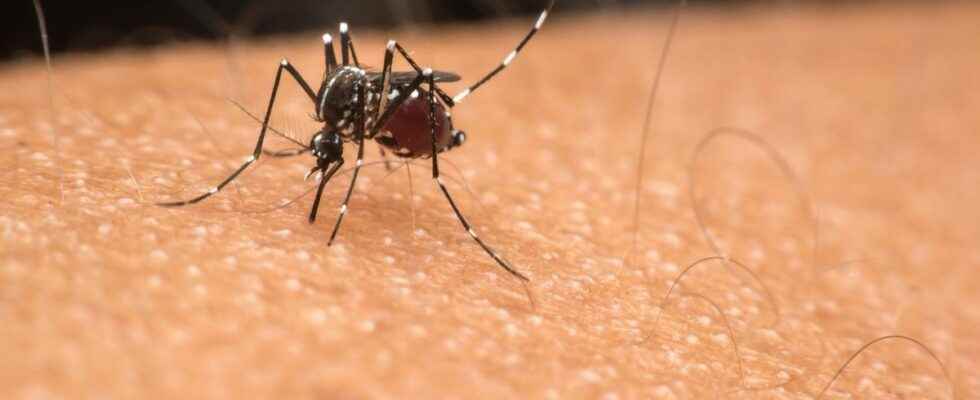Published on
Updated
Reading 2 mins.
The Directorate General of Health (DGS) gives the alert in a note addressed to doctors in the Toulouse region: cases of dengue fever are on the increase in Occitania. She fears an increase in dengue fever cases in the coming weeks.
The many mosquito control operations seem not to have fully borne fruit. Indeed, and this is a first in the department of Haute-Garonne, several cases of suspected dengue fever, including some indigenous people, but also Zika or even chikungunya, have been reported.
The DGS gives the alert in a note
Since the beginning of the month, at least two people have been infected with dengue fever in Haute-Garonne. It is originally a person who came from abroad. But the bite of a tiger mosquito was enough to transmit the disease to a second person, who had not traveled abroad recently. Several other departments are concerned, as indicated by the DGS in its letter, dated September 12.
Since last July, no less than “five episodes of autochthonous dengue transmission“, which have been identified in the departments of Haute-Garonne, Pyrénées-Orientales, Hautes-Pyrénées, but also Alpes-Maritimes and Var.
Nearly 140 cases since May
“From May 1 to September 2, 2022, Public Health France counted 139 imported cases of dengue fever. As the disease is often asymptomatic (75%), the total number of imported cases can be estimated at double. Since the start of the season, 26 autochthonous cases have been detected, corresponding to five episodes of transmission, including three major outbreaks in the PACA and Occitanie regions. again reports the DGS.
The health authority believes that various factors could explain these figures, such as “the extension on the territory and the high densities of the vector mosquito Aedes albopictus (the tiger mosquito, already established in 67 departments), the resumption of travel and the return of travelers from endemic areas and the current climatic conditions favorable to the multiplication mosquitoes with heat and rain”.
Dengue gives fever and joint pain. There may also be digestive signs and a skin rash, with the appearance of red patches on the skin. The acute phase lasts about a week. Severe forms of the disease are rare.
Beware, however, of the peak of the disease, again warns the Directorate General of Health. In effect, “a critical phase can occur between the 4th and 6th day approximately; the warning signs are a fever above 39°C after the 5th day, severe abdominal pain with or without diarrhoea, uncontrollable vomiting, restlessness or drowsiness, edema, hemorrhagic signs”.
The DGS therefore suspects the appearance of new cases of dengue fever in the coming weeks. “The prevention of dengue is based above all on vector control actions, at the individual and collective levels. Patients must imperatively isolate themselves from mosquitoes during their viraemia phase, which lasts about ten days..
On an individual scale, to avoid being stung, it is advisable to “wear covering and loose clothing, to use a skin repellent, to set up mosquito nets on the openings (doors and windows) and to use electric diffusers inside the dwellings”.

